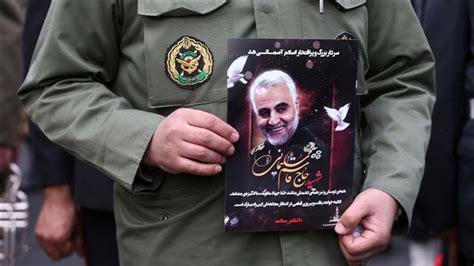
Iran ‘terrorist attack’ puts spotlight on Qassem Soleimani, top general once considered almost as powerful as Khamenei
More than 100 people were killed and nearly 200 others injured on Wednesday after twin blasts rocked Kerman on Wednesday.
The incident — dubbed a “terroristic” attack took place during a ceremony honouring slain Iranian general Qassem Soleimani. The former head of the Revolutionary Guard’s elite Quds Force had been killed in a January 2020 US drone strike — a move that Iran has repeatedly vowed to avenge. The development also comes amid heightened tensions in the Middle East over the ongoing Israel-Hamas war.
The blasts struck an event marking the the fourth anniversary Soleimani’s death near his grave site in Kernan. Footage shared by the Iranian state media suggests that the second blast occurred some 15 minutes after the initial explosion. No group has claimed responsibility for the attack thus far.
“Two explosive devices planted along the road leading to Kerman’s Martyrs’ Cemetery were detonated remotely by terrorists,” Reuters quoted an official as telling the state news agency IRNA.
Last week, Iran accused Israel of killing another senior IRGC officer — and Soleimani’s former colleague — Seyyed Razi Mousavi, in Syria. The Israeli Foreign Ministry said it had no comment after the Kerman attack.
The assassination of Qassem Soleimani had left the US and Iran on the brink of a full-blown conflict in 2020. Tehran had retaliated by attacking two Iraq military bases that housed US troops and repeatedly vowed to avenge the top military officer. Soleimani is still hailed as a national icon among supporters of Iran’s theocracy and considered the architect of the country’s regional military activities.
Soleimani had been one of Iran’s most powerful generals and helped project the country’s power abroad through a network of proxy militias opposed to Israel including Hezbollah in Lebanon and Hamas in Gaza. However he remained relatively unknown until the 2003 invasion of Iraq.
Soleimani’s popularity and mystique had grown after American officials called for his killing over his help arming militants with penetrating roadside bombs that killed and maimed US troops. He eventually became one of the country’s most recognisable battlefield commanders — ignoring calls to enter politics but growing as powerful, if not more, than its civilian leadership.
Source » livemint.com





